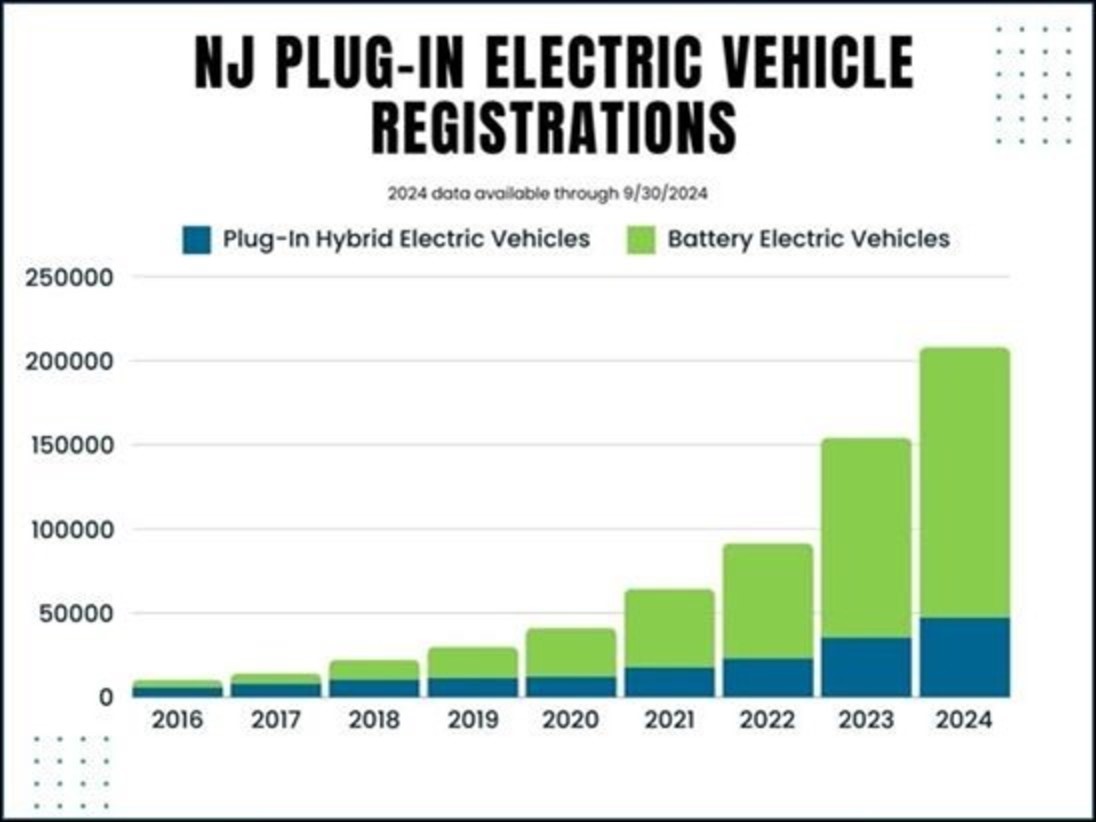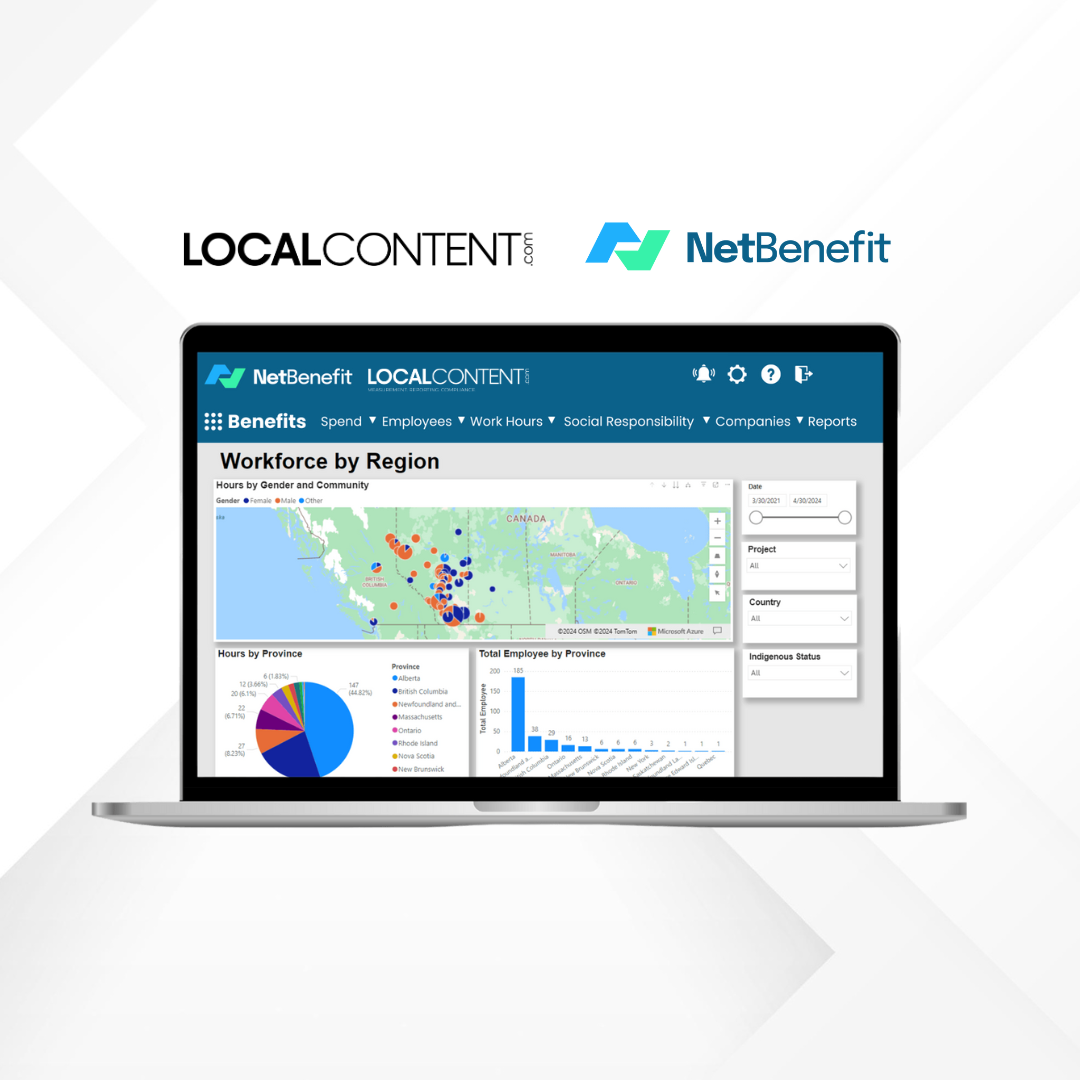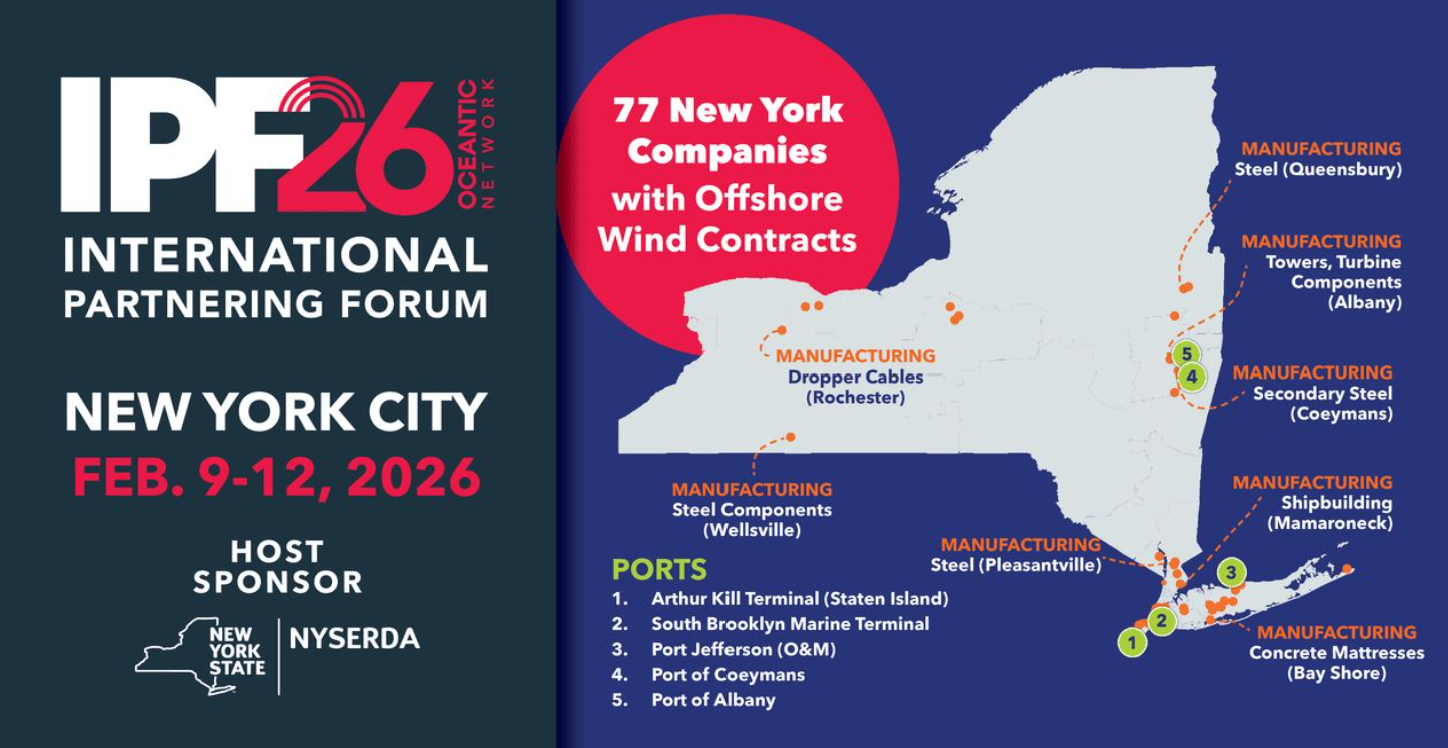(Trenton,NJ) – New Jersey has reached a significant milepost by surpassing 200,000 electric vehicle registrations, demonstrating increasing consumer confidence in these vehicles and the availability of charging infrastructure, as well as the success of policies implemented by Governor Phil Murphy. Nearly 208,000 battery-electric and plug-in hybrid electric vehicles, or EVs, are now registered with the New Jersey Motor Vehicle Commission, more than double the number of EVs registered in the state just two years ago.
Transitioning to electric vehicles to reduce greenhouse gas emissions, improve air quality, and move the state to a cleaner, more sustainable transportation future is a core priority for the Murphy Administration, which has implemented some of the nation’s most progressive programs to incentivize purchases of EVs and ensure the availability of charging infrastructure to help consumers overcome “range anxiety.”
“New Jersey is leading the charge in transitioning toward a zero-emission future. Reaching this 200,000 EV milepost clearly demonstrates growing consumer confidence in the performance of electric vehicles and our growing regional network of charging infrastructure,” said Governor Murphy. “During my Administration, registrations of electric vehicles have grown exponentially, due in large part to our policies that are giving consumers and businesses the confidence to make the EV switch. The steps we take today to lower emissions will improve air quality and mitigate climate impacts for generations to come, all while increasing access to cleaner car choices.”

“We are proud of this milestone and remain committed to supporting the continued growth of electric vehicles in New Jersey,” said Environmental Protection Commissioner Shawn M. LaTourette. “For the last three years, the state’s market share of EVs has consistently exceeded the national average, and we will do everything we can to maintain this momentum.”
“NJBPU is proud of the impact the Charge Up program has had in transforming the EV market in New Jersey,” said NJBPU President Christine Guhl-Sadovy. “Not only has the program provided more than 40,000 vehicle incentives to help make EVs more affordable, it has also created additional interest in the clean transportation sector.”
“Under Governor Murphy’s leadership, New Jersey has taken bold measures to lower emissions and improve health outcomes in overburdened communities. As nearly half of New Jersey’s carbon emissions are produced by vehicles, this milestone is a major step in the right direction,” said NJEDA Chief Executive Officer Tim Sullivan. “By continuing to develop clean-energy initiatives and programs such as NJ ZIP, residents and small business owners will be able to reap the economic and environmental benefits of putting more zero-emission vehicles on New Jersey’s roads.”
Exponential Growth in Registrations
Transportation remains the largest source of greenhouse gases in the state, at 37% of all emissions. Emissions from vehicles also contain pollutants that are harmful to human health and contribute to the formation of smog. Decisive policies and clear direction from the Murphy Administration has boosted sales exponentially, including the recent adoption of Advanced Clean Cars II to expand new and used EV options in the market.
In 2016, there were 10,911 EVs registered in the state. This grew to 91,515 by the end of 2022. As of the most recent reporting available, the number of EVs in September of this year was 207,268, a doubling since 2022 that has resulted from strong policies, increasing consumer demand, vehicle availability and choice, and expansion of charging infrastructure.
Manufacturers are currently offering 57 EV models to consumers in New Jersey. According to data curated by the Northeast States for Coordinated Air Use Management, New Jersey’s market share of EV sales as of the third quarter of 2024 is 14.4 percent compared to a national average of 10.2 percent. In fact, for the last three years, New Jersey’s market share of EVs has consistently exceeded the national average.
Driving the State’s Success: Partnership to Plug-in
The state’s success in EV growth has been driven by the collaboration among the Department of Environmental Protection, Board of Public Utilities, and Economic Development Authority in developing a complementary and robust suite of incentives that encourage both consumers and businesses to make the switch to electric vehicles. Key incentives include:
- Charge Up New Jersey: A rebate program offering up to $4,000 for individuals purchasing or leasing an eligible new EV. To date, $113,705,200 has been issued or reserved for consumers purchasing or leasing new EVs.
- NJ Zero-Emission Incentive Program (NJZIP): A voucher program incentivizing the use of zero-emission medium and heavy-duty vehicles.
- Clean Fleet EV Program: An incentive program for local, state and non-profit entities purchasing new EVs and/or EV charging stations.
- Diesel Modernization Program: A program to incentivize the transition to electric medium and heavy-duty vehicles and equipment.
Since 2019, the Murphy Administration has provided over $600 million in incentives for private, local government, state government, airport and port vehicles, e-mobility projects, and charging stations. Visit Drive Green NJ to learn more about the benefits of EVs, and see a comprehensive guide to rebates, charging options, and available incentives.
Increasing Charging Capacity
The number of charging ports in the state has increased exponentially in the last few years, due in large part to New Jersey incentive programs such as It Pay$ to Plug In, EV Tourism, and the Multi-Unit Dwelling EV Charger Incentive Programs. For comparison, in 2016, there were just 150 charging ports in the state. There are now more than 4,000 publicly accessible charging ports and thousands more are expected to be funded and come online over the next year, giving consumers ready access to charging at a variety of locations, including workplaces, multi-unit dwellings, public parking lots, and tourist locations. In addition, the BPU has funded 7,000 home chargers, which will satisfy the majority of charging needs for those residents. In 2020 and 2021, the BPU approved utility programs that provide incentives for public, residential, multi-unit dwelling, and workplace chargers.
New Jersey led a multi-state collaborative initiative, which received a $250 million award to deploy electric vehicle charging infrastructure for commercial zero-emission medium and heavy-duty vehicles along the I-95 corridor. New Jersey is committed to the expansion of publicly accessible chargers and awaits selection announcements on multiple proposals submitted for federal funding consideration.
New Jersey’s incentives for EVs and EV charging stations can be bundled together and be used along with utility incentive programs. In addition, the federal government provides tax credits to purchasers of EVs and EV charging stations, which includes businesses and tax-exempt organizations. These various incentives, along with federal tax credits, make the cost of EVs very appealing.
For charts and data on EV sales and registrations, charger locations and other information, visit https://dep.nj.gov/drivegreen/nj-ev-data/










